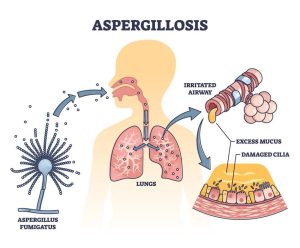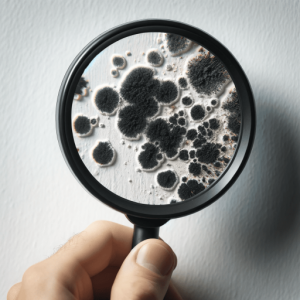Health Mould and Bacterial Triggers
Mould and bacteria in indoor environments, particularly in damp or water-damaged buildings, can pose significant health risks. Here’s an overview of the health issues and triggers associated with mould and bacterial exposure:
Respiratory Issues:
 Exposure to mould and bacteria can cause or exacerbate respiratory conditions such as asthma, bronchitis, and allergic rhinitis
Exposure to mould and bacteria can cause or exacerbate respiratory conditions such as asthma, bronchitis, and allergic rhinitis
. Inhaling mould spores and fragments can trigger nasal congestion, sneezing, coughing, wheezing, and respiratory infections
Allergic Reactions:
Mould and bacteria can trigger allergic reactions, resulting in symptoms like sneezing, coughing, watery eyes, and skin rashes
These reactions can range from mild problems like itchy eyes and irritation to more severe issues
Infections:
Certain bacteria, such as Legionella pneumophila, can cause severe respiratory infections like Legionnaires’ disease, which can be life-threatening, especially for vulnerable individuals
Chronic Inflammatory Response:
Long-term exposure to mould can lead to a condition known as Chronic Inflammatory Response Syndrome, where the immune system overreacts to the presence of mould spores, causing inflammation throughout the body
Neurological Effects:
Some studies have reported nervous system effects, including headaches and fatigue, associated with exposure to mould and bacteria in damp indoor environments
Immune System Impact:
Exposure to certain mould and bacterial toxins may lead to suppression of the immune response, making individuals more susceptible to other health issues
Skin Irritation:
Some reports have linked mould exposure to other health issues such as rheumatoid disease, loss of appetite, and in rare cases, potential carcinogenic effects, though more research is needed in these areas
It’s important to note that the response to mould and bacterial exposure can vary significantly between individuals
Those with weakened immune systems, pre-existing respiratory conditions, or other vulnerabilities may be at higher risk for severe health complications
While a causal relationship between mould exposure and all reported health effects has not been definitively established, health authorities recommend minimizing exposure to mould and addressing moisture issues in indoor environments as a precautionary measure
If you suspect mould or bacterial growth in your living or working space, it’s advisable to address the moisture issue, clean the affected areas, and consult with a healthcare professional if you experience persistent symptoms.

